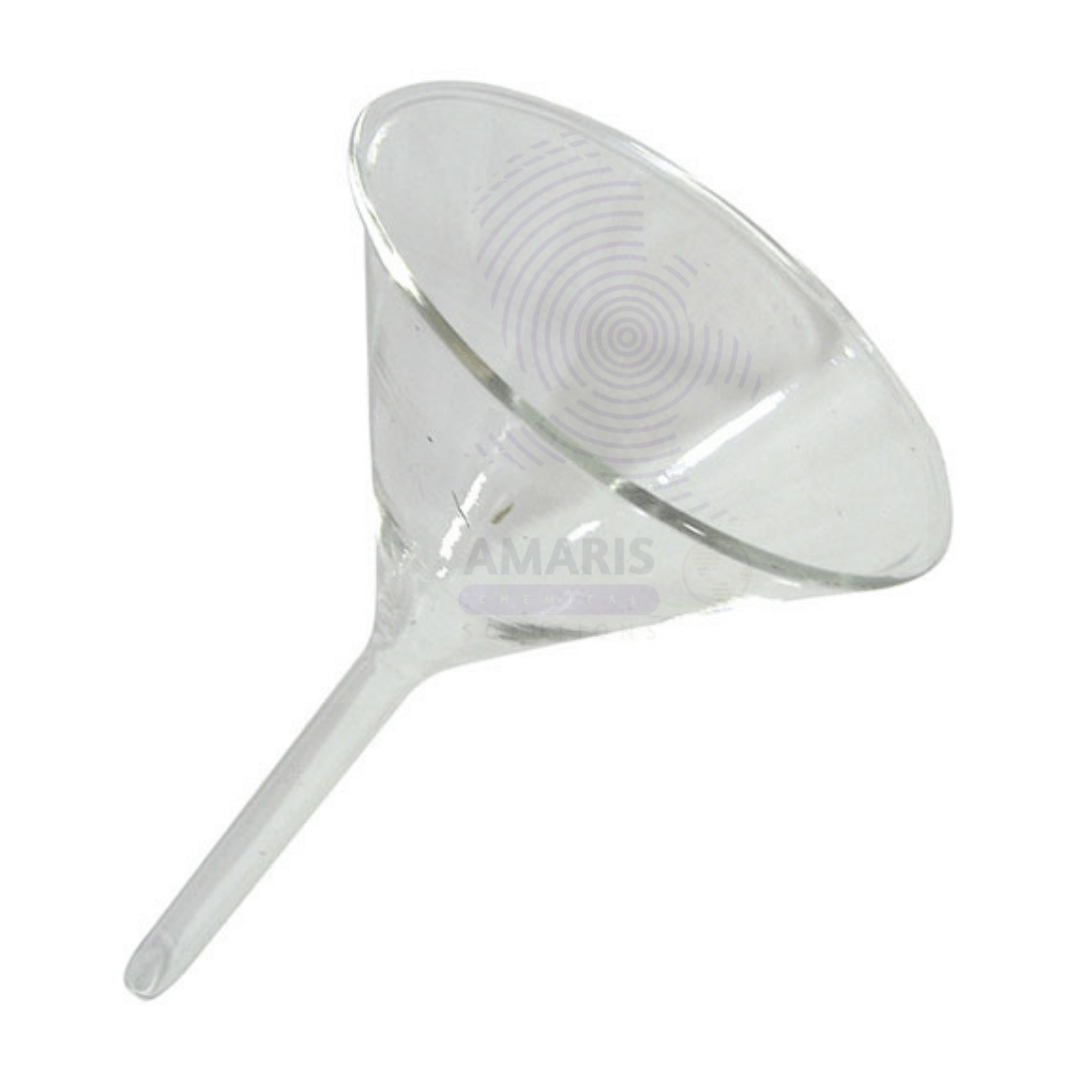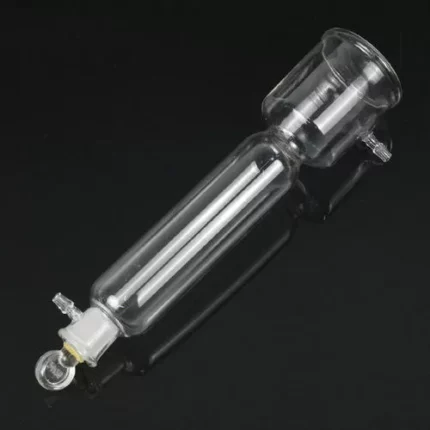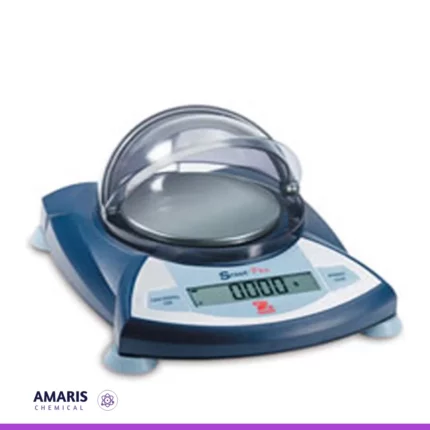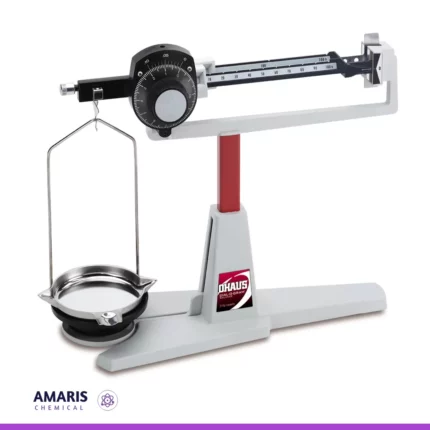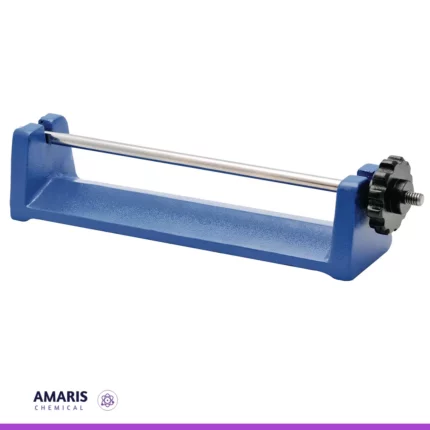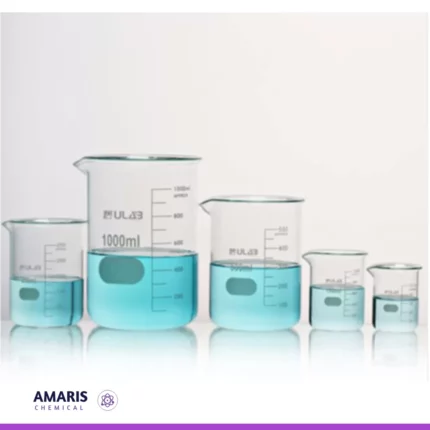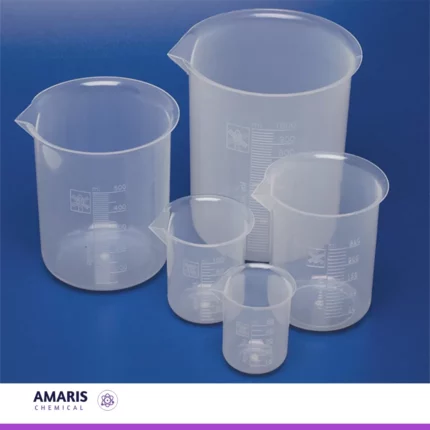“beaker pyrex” has been added to your cart. View cart
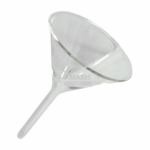
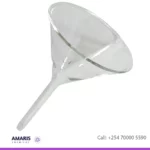
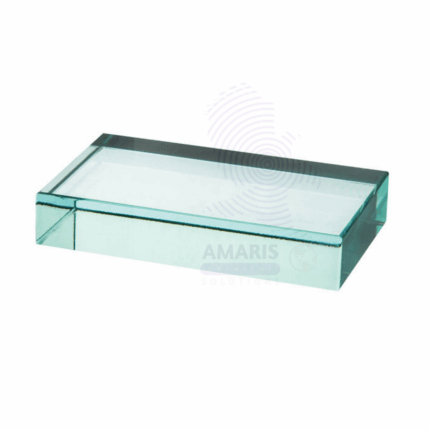
Rectangular Glass Block
$500.00 Original price was: $500.00.$400.00Current price is: $400.00.
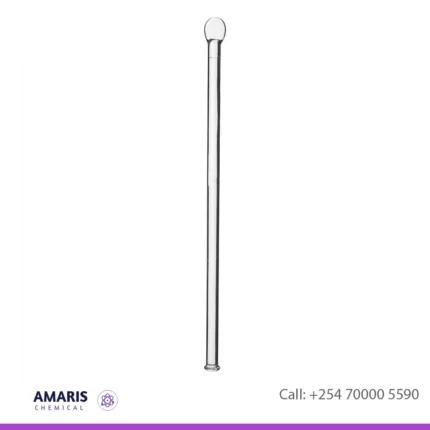
Glass Stirring Rod
$500.00 Original price was: $500.00.$450.00Current price is: $450.00.
Glass Funnel
$250.00 Original price was: $250.00.$200.00Current price is: $200.00.
Whatsapp Order
A glass funnel is a laboratory apparatus used to transfer liquids or fine-grained substances into containers with narrow openings. Here are some key details about a glass funnel:
Description
- Material: Typically made of borosilicate glass, which is resistant to thermal shock and chemical corrosion.
- Shape: Consists of a conical upper section (the wide part) and a cylindrical lower section (the narrow stem).
- Size: Comes in various sizes, typically described by the diameter of the top opening and the length of the stem.
SKU:
ACS87931CHEM0
Category: LABORATORY EQUIPMENT & APPARATUS
Description
Uses of Glass funnel
- Liquid Transfer: Used to pour liquids into containers with small openings to avoid spills.
- Filtration: Often used with filter paper to separate solids from liquids.
- Powder Transfer: Helps in transferring powders without spilling.
Related products
Absorption Tower
$0.01
A laboratory absorption tower is a scaled-down version of an industrial absorption tower used for experimental purposes within a laboratory setting. It is a specialized piece of lab apparatus designed to investigate the principles of gas-liquid absorption or scrubbing processes under controlled conditions.
Typically, a lab absorption tower consists of a glass or transparent column filled with a packing material or trays to facilitate the gas-liquid contact. It is equipped with inlet and outlet ports to introduce the gas stream and remove the treated gas after absorption. Additionally, there are ports or connections to introduce the liquid solvent and monitor its flow rate. The tower may also have temperature and pressure control mechanisms to simulate specific conditions relevant to the experiment.
Laboratory absorption towers are essential tools for researchers, chemists, and engineers to study the behavior of gases and liquids during absorption processes, optimize process parameters, and assess the efficiency of different solvents or packing materials. These experiments contribute to the development and improvement of industrial-scale absorption systems and help in solving environmental challenges related to air and gas pollution.
beaker hysil
$0.01
A glass beaker is a cylindrical, open-top container made of glass, typically with graduated volume markings on its side. It is commonly used in laboratories for holding, mixing, and heating liquids, as well as for performing various experiments and chemical reactions. Glass beakers come in various sizes and are designed to provide easy observation of the contents and to withstand temperature changes without significant deformation or chemical interaction with the substances being used.
Beaker Plastic
$0.01
A plastic beaker is a laboratory container made from plastic material, typically featuring a cylindrical shape with a flat bottom and a spout or pouring lip. It is used for holding, measuring, and mixing liquids or substances during various scientific experiments, research, or educational activities. Plastic beakers come in a range of sizes and are designed to withstand various chemicals and temperatures, making them versatile tools in laboratory settings.
blow pipes
$0.01
A blowpipe apparatus is a scientific instrument used in analytical chemistry and mineralogy for conducting various tests, particularly flame tests and microchemical reactions. It typically consists of a small tube or pipette through which a controlled stream of air or oxygen is blown onto a sample being heated. This stream of air or oxygen enhances the combustion of the sample, allowing the observation of characteristic colors emitted by different elements when they are vaporized and excited by the heat. The blowpipe apparatus is often used to identify and differentiate between different elements and compounds based on their unique emission spectra and reactions.


 Emollients
Emollients Humectants
Humectants UV Filters
UV Filters Surfactants (cosmetic)
Surfactants (cosmetic) Preservatives (cosmetic)
Preservatives (cosmetic) Fragrances and Essential Oils
Fragrances and Essential Oils Antioxidants (cosmetics)
Antioxidants (cosmetics)
 Solvents (lab)
Solvents (lab) Chromatography Chemicals
Chromatography Chemicals Microbiology and Cell Culture Reagents
Microbiology and Cell Culture Reagents Biochemical Reagents
Biochemical Reagents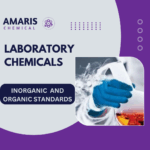 Inorganic and Organic Standards
Inorganic and Organic Standards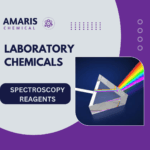 Spectroscopy Reagents
Spectroscopy Reagents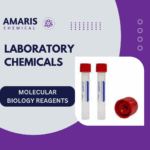 Molecular Biology Reagents
Molecular Biology Reagents
 Precious Metal Extraction Agents
Precious Metal Extraction Agents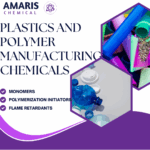
 Plasticizers
Plasticizers Polymerization Initiators
Polymerization Initiators Stabilizers
Stabilizers Monomers
Monomers Fillers and Reinforcements
Fillers and Reinforcements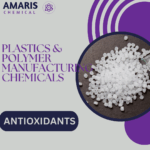 Antioxidants (plastics)
Antioxidants (plastics) Colorants (plastic pigments,Dyes)
Colorants (plastic pigments,Dyes)
 Fertilizers
Fertilizers Plant Growth Regulators
Plant Growth Regulators Soil Conditioners
Soil Conditioners Animal Feed Additives
Animal Feed Additives Biostimulants
Biostimulants
 Dough Conditioners
Dough Conditioners Flour Treatments
Flour Treatments Fat Replacers
Fat Replacers Preservatives (baking)
Preservatives (baking)
 Surfactants (cleaning)
Surfactants (cleaning) Builders
Builders Bleaching Agents
Bleaching Agents Enzymes
Enzymes Solvents (cleaning)
Solvents (cleaning) Fragrances
Fragrances Disinfectant
Disinfectant Metal cleaning
Metal cleaning
 Binders/Resins
Binders/Resins Pigments
Pigments Solvents (paint)
Solvents (paint) Additives
Additives Driers
Driers Anti-Corrosion Agents
Anti-Corrosion Agents Specialty Coatings
Specialty Coatings Functional Coatings
Functional Coatings Application-Specific Coatings
Application-Specific Coatings
 Sealants and Adhesives
Sealants and Adhesives
 Biodegradable Surfactants
Biodegradable Surfactants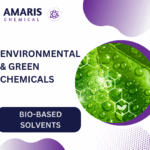 Bio-based Solvents
Bio-based Solvents Renewable Polymers
Renewable Polymers Carbon Capture Chemicals
Carbon Capture Chemicals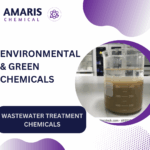 Wastewater Treatment Chemicals
Wastewater Treatment Chemicals
 Preservatives (food)
Preservatives (food) Flavor Enhancers
Flavor Enhancers Acidulants
Acidulants Sweeteners
Sweeteners Emulsifiers
Emulsifiers Antioxidants (food)
Antioxidants (food) Colorants (food)
Colorants (food) Nutrient Supplements
Nutrient Supplements Nutraceutical Ingredients
Nutraceutical Ingredients
 Fresh Herbs
Fresh Herbs Whole Spices
Whole Spices Ground Spices
Ground Spices Spice Blends
Spice Blends
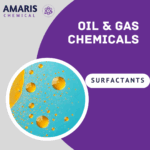 Surfactants(oil)
Surfactants(oil)
 Antibiotics
Antibiotics Active Pharmaceutical Ingredients
Active Pharmaceutical Ingredients Excipients
Excipients Vaccine Adjuvants
Vaccine Adjuvants Nutraceutical Ingredients
Nutraceutical Ingredients Solvents (pharmaceutical)
Solvents (pharmaceutical)
 Automotive chemicals
Automotive chemicals Pyrotechnic Chemicals
Pyrotechnic Chemicals


 Vulcanizing Agents
Vulcanizing Agents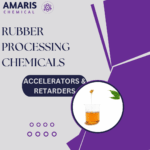 Accelerators & Retarders
Accelerators & Retarders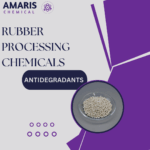 Antidegradants
Antidegradants Reinforcing Agents
Reinforcing Agents Plasticizers & Softeners
Plasticizers & Softeners Fillers & Extenders
Fillers & Extenders Blowing Agents
Blowing Agents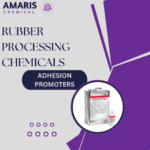 Adhesion Promoters
Adhesion Promoters
